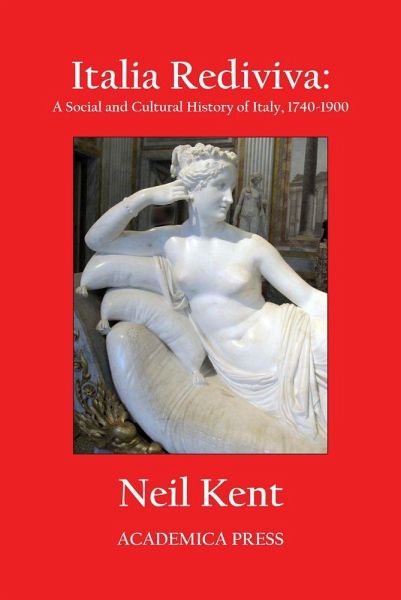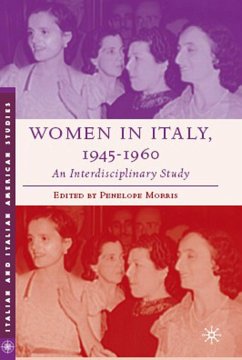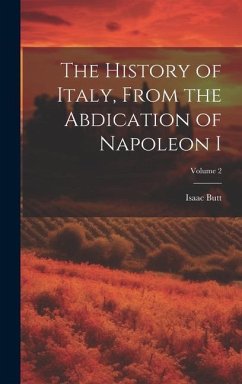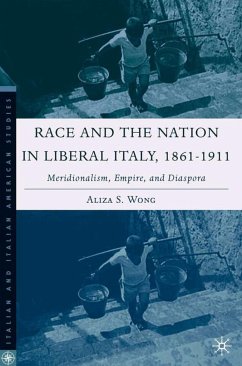
Italia Rediviva: A Social and Cultural History of Italy, 1740-1900 (Paperback)
Versandkostenfrei!
Versandfertig in über 4 Wochen
79,99 €
inkl. MwSt.

PAYBACK Punkte
40 °P sammeln!
This book seeks to provide a readable history, rich in both anecdotes and statistics, for students and a wide reading public who are interested in Italy in a period of history which - while it has been widely examined with respect to the Risorgimento as a positive and progressive movement which united Italy and enabled it to enter the modern world - has failed to consider Italy's multiplicity of cultures, art, architecture and societies. The period from 1750-1900, however, is neglected. This book rectifies the situation, examining the Catholic Church and its relationship to Jews, Protestants, ...
This book seeks to provide a readable history, rich in both anecdotes and statistics, for students and a wide reading public who are interested in Italy in a period of history which - while it has been widely examined with respect to the Risorgimento as a positive and progressive movement which united Italy and enabled it to enter the modern world - has failed to consider Italy's multiplicity of cultures, art, architecture and societies. The period from 1750-1900, however, is neglected. This book rectifies the situation, examining the Catholic Church and its relationship to Jews, Protestants, Moslems, and the state; the relationship of urban areas to the countryside, with various regional dimensions; art, architecture, literature and music; famines, epidemics, health, and hygiene; the family, women, and sexual identity; war, peace, criminality, and the Mafia. Italia Redivia thus focuses on how Italians lived and interacted on a grass-roots level. Rather than considering the Risorgimento and Italy's national unification as THE defining event of the period, this work provides an alternative focus, rejecting sweeping conclusions in favor of a more nuanced analysis in which the regional societies, religious communities, local cultures and economic activities that informed the Italian peninsula from 1750-1900 are set against a complex background of conflict and cooperation, at a time of growing industrialization, secularism, and economic competition, which witnessed the rise of an independent Kingdom of Naples to the assassination of King Umberto I.












